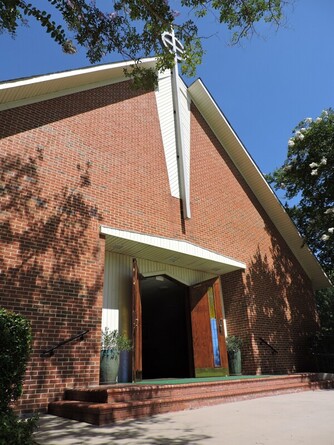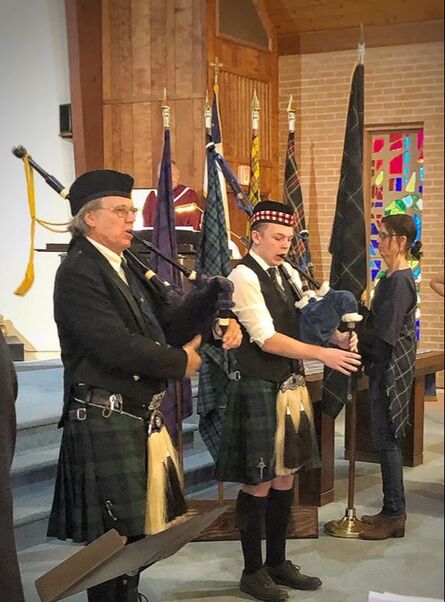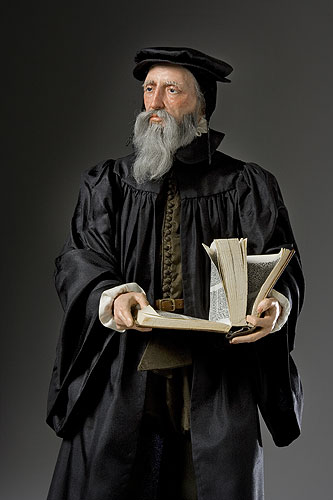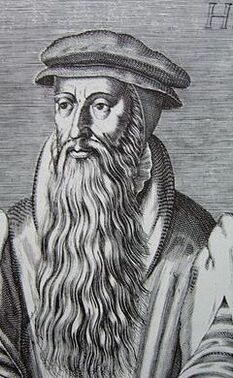The Founding of SAPC
|
South Aiken Presbyterian Church (SAPC) located in Aiken, SC, has been “opening doors to serve Christ” since its formal founding in 1955. SAPC is the daughter congregation of First Presbyterian Church, in downtown Aiken, and was founded to address the rapid growth on the south side of town.
At first, to address this growth, our congregation founded as a "Chapel on Wheels" - a ministry founded to support the construction workers employed at the local US Government plutonium manufacturing plant, and run out of a portable mobile home. The Reverend Russell W. Park, Sr., then began construction of the first permanent chapel after surveying the local area and confirming the need for a church community, with the first official election of session, treasurer, and trustees occurring in January of 1955. The first worship service held in the new building took place on June 5, 1955, in what is now the Fellowship Hall. As our membership grew, not only from transferred memberships in the community but also gathering new Aiken residents moving to the area for the Savannah River Nuclear Site, expansions began, and we solidified as a strong fixture in South Aiken's Community. If you are interested in learning more, ask for a copy of "Opening Doors to Serve Christ: A History of the First Fifty Years of South Aiken Presbyterian Church," by Barbara E. Johnson and Stephen E. Stine, at our church library. |
Tradition: Kirkin' O' the Tartans
|
|
The ceremony of Kirkin’ O’ the Tartan is of American origin, though based on Scottish history and legend. After Bonnie Prince Charlie’s Scottish forces were defeated by the English at the Battle of Culloden in 1746, Scotland once again came under British rule. To control the Scots, an Act was passed that forbade the carrying of arms and the wearing of kilts or tartans which represented Scottish heritage. Orders were given for British troops to kill any person dressed in or displaying the tartan.
This Act prompted the stubborn Scots to secretly carry with them a piece of their tartan as they went to the Kirk. The minister then slipped a blessing (a Kirkin’) into the service for the tartans. The prohibition against tartans lasted for nearly 50 years. When at last repealed, the Church of Scotland celebrated with a Service of Family Covenant, at which time the tartan of each family was offered as a covenant expression for the Lord’s blessing. The Saint Andrew’s Society of Washington, DC, held the first Kirkin’ during the early years of World War II. The late Dr. Peter Marshall, an eloquent Scot, then Chaplain of the US Senate as well as a pastor, led the service in 1943, choosing “Kirkin’ O’ the Tartan” for the title of his sermon. He had preached many sermons in support of the British War Relief and the Scottish Clans Evacuation Plan. His sermons were so popular that a request was made for their publication, with the proceeds designated for war relief programs. As the war continued, the DC St. Andrew’s Society continued to hold prayer services for British subjects. These became known as Kirkins. |
The Founding of the Presbyterian Church
|
The history of the Presbyterian church can be traced back to the original schism from Catholicism, when Martin Luther (1483-1546) nailed his 95 theses to the door of a Catholic church in 1517. This list was designed to reform the Catholic church and to solve several concerns, rather than to break away - however, this act quickly led to his excommunication from the Catholic church, leading to the beginning of the Protestant Reformation.
The Presbyterian faith derives its roots originally from John Calvin (1509-1564), a French reformation theologian. He recommended an organization built from groups of representatives named "presbyteries," as opposed to bishops in Episcopalian systems, or by whole congregations in Congregational systems. John Knox (1514-1572), a student of Martin Luther, then took his understanding of Luther and Calvin's teachings and founded the first Presbyterian Church of Scotland upon his return to the country. Presbyterians were among some of the first colonists and immigrants to arrive in America, settling along the East Coast before pushing into the West during Westward Expansion. The Presbyterian Church in the United States of America (PCUSA) was founded in Philadelphia in 1788, when the official church constitution and governmental organization was established. |
John Calvin, by George S. Stuart
|
John Knox, woodcut by an unknown artist
|




